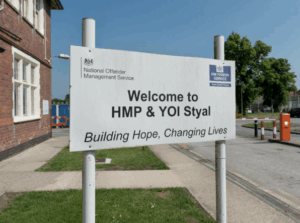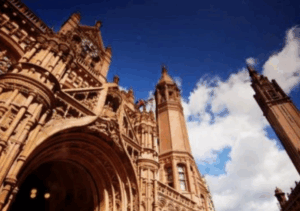In the run-up to the anticipated general election next year, the debate over inheritance tax (IHT) has taken centre stage in British politics. Cabinet minister Grant Shapps’ recent remarks and speculation about tax and pension changes have ignited a contentious discussion over the future of this tax.
Mr. Shapps voiced concerns on Sky News, stating, “I think it’s a question for many people of aspiration, and people know that there’s something deeply unfair about being taxed all their lives and then being taxed in death as well.” Chancellor Jeremy Hunt, however, finds himself in what Mr. Shapps referred to as a “fiscal straitjacket,” indicating that immediate changes in November’s autumn statement are unlikely. He suggested that the public would have to wait for a budget or another event for the government to reveal its plans.
While Mr. Shapps expressed a generic preference for lower taxes, he emphasised the importance of fiscal responsibility. He also shared a personal perspective, having recently lost a parent, acknowledging why some people find inheritance tax particularly punitive. Nevertheless, he recognised the complexity of various tax considerations faced by the Chancellor.
Downing Street sources have consistently denied that formal plans to abolish inheritance tax are in the works. Chancellor Jeremy Hunt has asserted that tax cuts are “virtually impossible” due to the state of the public finances. However, a senior government source revealed to the Sunday Times that political advisers in No 10 have been exploring the possibility of including the abolition of inheritance tax in the party’s manifesto. Still, it was emphasised that such a move might not be financially feasible at this time.
Inheritance tax is currently levied at a rate of 40%, but the majority of estates fall below the threshold, which can be as high as £1 million for a couple, thus avoiding the charge. Recent figures for the tax year 2020 to 2021 showed that only 3.73% of UK deaths resulted in an inheritance tax charge.
Within the Tory party, there has been increasing pressure to either change or scrap inheritance tax, with former prime minister Liz Truss among those calling for its elimination. In response, Labour’s shadow Treasury chief secretary, Darren Jones, criticised the idea, calling it an “unfunded tax cut of £7.2 billion per year.” He called on the Chancellor to provide answers on how such a change would be funded.
The Mail on Sunday also reported that Rishi Sunak plans to campaign on a promise to retain the triple lock, which ensures that the state pension increases by the highest of inflation, average earnings, or 2.5%. This commitment is made despite concerns about its long-term sustainability, as inflation and earnings have surged.
As speculation swirls around potential tax and pension reforms, Westminster gears up for the impending general election expected next year. The Sun on Sunday reported that councils have been instructed to prepare for an election in May, and Tory campaign leaders have been crafting local strategies for key seats. The hope is to replicate the success of the Uxbridge and South Ruislip by-election, where the Tories retained the seat vacated by Boris Johnson in a campaign dominated by the controversy surrounding the ultra-low emission zone (ULEZ).
Despite these preparations, Labour currently enjoys a significant lead in national opinion polls, raising questions about whether there will be sufficient divisive local issues to shift the electoral landscape in favour of the Conservative Party. As the political climate heats up, the fate of inheritance tax and other financial policies will undoubtedly play a pivotal role in shaping the upcoming election.





































